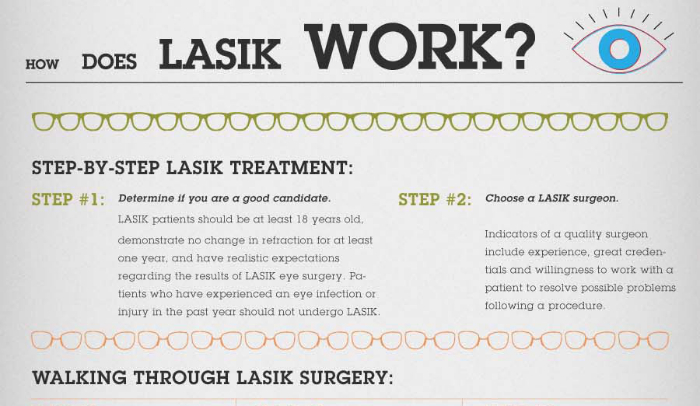Is SMILE Eye Surgical Treatment Right For You? Secret Considerations And Insights
Is SMILE Eye Surgical Treatment Right For You? Secret Considerations And Insights
Blog Article
Article Author-Frederiksen Bilde
If you're pondering SMILE eye surgery, ponder this: are you prepared to embrace prospective visual flexibility, or does the idea of any type of risks make you think twice? Your choice will certainly hinge on a mindful equilibrium of evaluating the benefits versus the uncertainties. It's important to dig much deeper into the subtleties of SMILE surgical procedure to make an informed choice that straightens with your aesthetic goals.
Comprehending SMILE Eye Surgery
When taking into consideration SMILE Eye Surgical treatment, it's important to recognize the procedure and its advantages. SMILE, which means Small Incision Lenticule Extraction, is a minimally invasive laser eye surgical procedure that deals with usual vision problems like myopia (nearsightedness).
Throughout the procedure, your eye cosmetic surgeon will utilize a femtosecond laser to produce a tiny incision in your cornea. Through this incision, a tiny disc of cells called a lenticule is gotten rid of, reshaping the cornea and correcting your vision.
Among the crucial advantages of SMILE Eye Surgery is its fast healing time. Numerous patients experience boosted vision within a day or more after the procedure, with marginal discomfort.
Furthermore, SMILE is known for its high success price in supplying lasting vision adjustment. Unlike LASIK, SMILE doesn't call for the creation of a flap in the cornea, minimizing the risk of problems and permitting a much more steady corneal framework post-surgery.
Recognizing the procedure and its advantages is crucial when considering SMILE Eye Surgical treatment for vision modification.
Advantages and disadvantages of SMILE
Thinking About SMILE Eye Surgical treatment for vision correction comes with various advantages and potential disadvantages.
One of the main pros of SMILE is its minimally intrusive nature, as it entails a small cut and commonly results in fast healing times. The treatment is also understood for causing minimal discomfort and completely dry eye symptoms post-surgery compared to various other vision adjustment approaches. In addition, SMILE has been revealed to supply excellent aesthetic end results, with several clients achieving 20/20 vision or far better.
On mouse click the up coming article , a prospective disadvantage of SMILE is that it might not appropriate for people with serious refractive errors, as the therapy array is somewhat restricted compared to LASIK. Another factor to consider is that the discovering contour for cosmetic surgeons executing SMILE can influence the accessibility of experienced providers in particular locations.
It is essential to weigh these benefits and drawbacks very carefully when deciding if SMILE is the appropriate choice for your vision adjustment requirements.
Determining Eligibility for SMILE
To identify if you're qualified for SMILE eye surgical procedure, your optometrist will perform a detailed analysis of your eye health and wellness and vision demands. Throughout this evaluation, elements such as the stability of your vision prescription, the thickness of your cornea, and the general wellness of your eyes will certainly be assessed.
Typically, https://lasikresearch98642.blogginaway.com/29813003/the-development-of-vision-correction-techniques-analyzing-the-advancements-in-smile-eye-surgical-treatment for SMILE more than 22 years old, have a secure vision prescription for at least a year, and have healthy and balanced corneas without problems like keratoconus.
Your eye doctor will likewise consider your general eye wellness, any kind of existing eye problems, and your way of living requires to figure out if SMILE is the ideal selection for you. It's vital to communicate any type of certain aesthetic needs or concerns you may have during this evaluation to make certain that the therapy aligns with your assumptions.
If you aren't qualified for SMILE, your optometrist might suggest alternative vision improvement options that far better suit your individual needs and eye health status.
Conclusion
Inevitably, deciding whether SMILE eye surgical treatment is right for you needs careful consideration of your private eye health and wellness and aesthetic needs. Speak with your eye doctor to determine your qualification for the treatment and weigh the potential benefits and downsides. Remember to connect any kind of issues or inquiries you might have during the evaluation procedure to make an educated choice concerning your vision modification choices.
